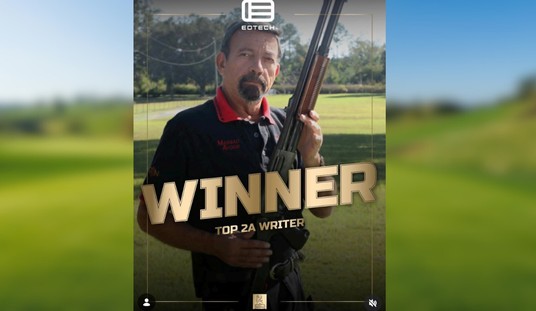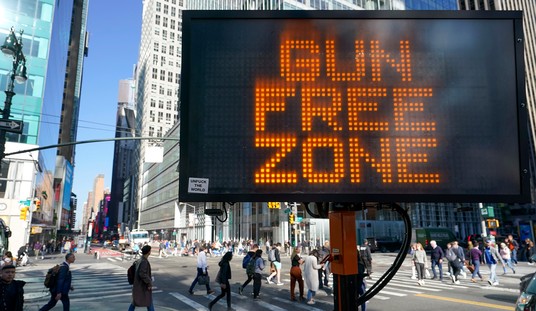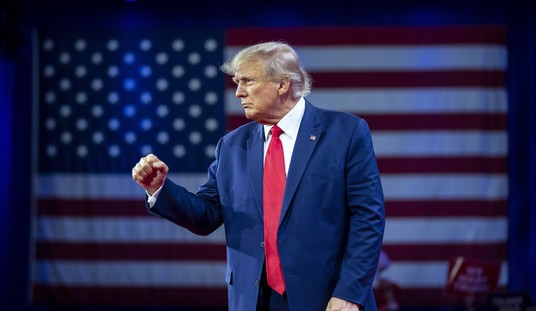On Wednesday, my colleague Tom Knighton and I both weighed in USA Today's use of leaked data from Mexican military intelligence to make the case that the firearms industry is willfully and intentionally fueling cartel violence south of the border. On Wednesday night, I heard from retired ATF deputy assistant director Pete Forcelli, who had some thoughts of his own on the report. Instead of keeping that conversation to ourselves, I invited Pete to join me on today's Bearing Arms Cam & Co to give his take on the report.
"That article was more of a hit job on the industry" than a fair report, Forcelli told me.
Forcelli actually spoke to USA Today reporter Nick Penzenstadler for the story, though only a couple of his comments appeared in the piece.
Of the other six top purchasers, half are linked to the Bureau of Alcohol, Tobacco, Firearms and Explosives scandal known as Fast and Furious.
From 2006-2011 agents in Arizona stood down as straw purchasers illegally bought 2,000 guns at shops, intending to use the information to track trafficking patterns and arrest the kingpins. However, agents didn’t deliver the high-level arrests – and in the process, they lost track of hundreds of guns.
One of those guns was recovered at the Nogales, Arizona, crime scene where U.S. Border Patrol agent Brian Terry was killed in 2010 when his tactical unit attempted to arrest a band of robbery suspects.
So what did Forcelli tell the reporter that didn't end up in the finished story?
"A lot," Forcelli revealed. "I spoke about the United States Attorney's Office [in Phoenix] would not allow us to arrest folks when we got tips from the industry. I explained to him how 90% of the tips we got came from licensed gun dealers. And it wasn't just tips on straw buyers. It was tips on folks who were selling guns illegally. Look, it was a thing at gun shows. You'd have some folks saying 'hey, private sales, off-paper', and the dealers would spot them before we did oftentimes."
The vast majority of FFL's Forcelli dealt with in Phoenix were the "first line of defense" in combatting gun trafficking and violent crime, according to Forcelli, not part of the problem. But that's not the only portion of Penzenstadler's story that bothers Forcelli.
He talks about 2,000 guns walked between 2006 and 2011. If you notice, that extends this beyond the Obama administration and into the Bush era. Look, Operation Fast and Furious started in September or October of 2009, and it ended shortly after [Border Patrol agent] Brian Terry was murdered in 2011. That happened squarely on Obama's watch, so that kind of bothered me because we spoke about this at length.
Forcelli also took issue with what are supposedly "sought after" guns by the cartels based on the number of recoveries, which include the Smith & Wesson Model 10 revolver and the Jennings J22; a so-called "junk gun" first produced in the late 1970s with a reputation for being a "complete garbage pistol", as the Firearms Blog called it. As Tom Knighton opined yesterday, the guns that are most commonly recovered in Mexico indicate that the cartels are willing to get whatever they can get their hands on through the black market, not that the firearms industry is intentionally flooding the market in order to arm the cartels.
Forcelli says the timing of Penzenstadler's report also raises his eyebrows, given that a lawsuit filed by the Mexican government against five Arizona gun dealers is getting ready to go to trial. Forcelli says he dealt with one of those dealers on a regular basis when he was an ATF supervisor in Phoenix, and he was often helpful to the agents.
I never heard of the other dealers, which speaks volumes too. If they were a problem, I would have heard of them back in the day. Never heard of these other dealers. Sprague's, like I said, very cooperative and helpful. Very close to the Mexican border because they're based in Yuma, but proximity is not a crime. It's just appalling.
Forcelli's not the only law enforcement agent who was tasked with disrupting cartel activity to take issue with the USA Today report. Forcelli shared a text message he received from one of his former colleagues who was stationed in Mexico after he read the story.
As the guy who implemented Spanish e-Trace in Mexico and worked very closely with [the agency tracing guns in Mexico], I would be my left nut that the data is at least ten years old and not nearly complete. In fact, I would bet my other nut that [the agency] is corrupt and incompetent.
Are the Mexican drug cartels interested in acquiring guns in the U.S.? Without a doubt. But that doesn't mean that the industry is actively helping them to do so. Penzenstadler's report glosses over the damage done by Operation Fast & Furious, and makes only the briefest mention of the corruption within the Mexican government that, among other activities, diverts legally-imported firearms meant for military and law enforcement to cartel groups. The reporter didn't include Forcelli's assertions that the U.S. Attorney's Office in Phoenix hampered law enforcement efforts to arrest and prosecute straw buyers even before Operation Fast and Furious kicked off, which is another bit of evidence that cuts against Mexico's claims about the firearms industry.
The only reason Penzenstadler's report would be a "nightmare" for the firearms industry is because it's a one-sided narrative that fails to paint a full picture of the complexities of combatting cartel violence and gun-running; instead simply portraying the firearms industry as the villain of his story. When the very agents who were responsible for arresting straw buyers and disrupting trafficking rings say the story is disingenuous, I'd say that's newsworthy in and of itself. I hope Penzenstadler will do a follow-up that addresses these criticisms, but I'm not holding my breath. Thankfully, the mainstream media isn't the only way to get this information out there, and we'll continue to provide a platform for Forcelli and others to share their first-hand experiences; both with the drug cartels and the U.S. firearms industry.









Join the conversation as a VIP Member